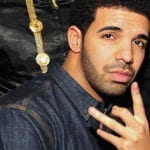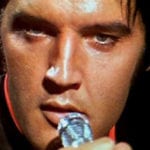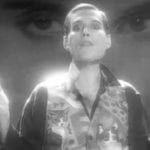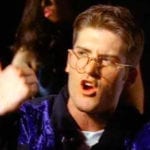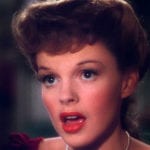 Weird Stuff
Weird Stuff  Weird Stuff
Weird Stuff  Miscellaneous
Miscellaneous 10 LEGO Facts That Will Toy with Your Mind
 Misconceptions
Misconceptions 10 Widespread Historical Myths and the Texts That Started Them
 Crime
Crime 10 Incredible Big-Time Art Fraudsters
 Movies and TV
Movies and TV 10 Most Influential Fictional Objects in Cinema History
 Our World
Our World Top 10 Real Almost‑Cities That Never Materialized
 Technology
Technology 10 Unsettling Ways Big Brother Is (Likely) Spying on You
 Music
Music 10 Chance Encounters That Formed Legendary Bands
 Space
Space 10 Asteroids That Sneaked Closer Than Our Satellites
 Sport
Sport The 10 Least Credible Superstars in Professional Sports
 Weird Stuff
Weird Stuff 10 of History’s Greatest Pranks & Hoaxes
 Miscellaneous
Miscellaneous 10 LEGO Facts That Will Toy with Your Mind
 Misconceptions
Misconceptions 10 Widespread Historical Myths and the Texts That Started Them
Who's Behind Listverse?

Jamie Frater
Head Editor
Jamie founded Listverse due to an insatiable desire to share fascinating, obscure, and bizarre facts. He has been a guest speaker on numerous national radio and television stations and is a five time published author.
More About Us Crime
Crime 10 Incredible Big-Time Art Fraudsters
 Movies and TV
Movies and TV 10 Most Influential Fictional Objects in Cinema History
 Our World
Our World Top 10 Real Almost‑Cities That Never Materialized
 Technology
Technology 10 Unsettling Ways Big Brother Is (Likely) Spying on You
 Music
Music 10 Chance Encounters That Formed Legendary Bands
 Space
Space 10 Asteroids That Sneaked Closer Than Our Satellites
 Sport
Sport The 10 Least Credible Superstars in Professional Sports
Top 10 Famous Songs With Unknown Originals
I was shocked when I found out in a middle of a discussion about what was a better song, the original or the cover that the “original” version that everyone knew about was itself a cover. Research (because of course I can never be wrong) eventually became number 3 on this list. After that, I’ve been keeping my eyes and ears open, I eventually had ten songs that totally shocked me that the original version is not the one everyone knows about. I hope there are a few surprises in here for you too.
This song is best (only?) known as being the first video on Mtv. An argument can be made that this and the version by The Buggles are the same exact song since Bruce wrote it with Trevor Horn and Geoff Downes who would later form The Buggles. However, since this was released first and has Thomas Dolby on keyboards, I’m crediting it as the original.
A moderate hit for Hawkins and released just as what would eventually be Creedence Clearwater Revival was in its infacy, it became the first hit for CCR eleven years later as their first single of their first album. CCR reworked the song specifically for airplay on KMPX, an alternative radio station in San Francisco.
I’ve always thought that The Doors’ song Alabama Song (Whiskey Bar) didn’t sound like their regular work and I’ve found out why. The song was written in 1925 by Bertolt Brecht and set to music in 1927 by Kurt Weill who was probably not on drugs when it was written. The song was written in English for the German operetta Mahagonny and was sung by his wife Lotte Lenya (who sounds a lot like Lili von Schtupp). The song was later used in the full opera Rise and Fall of the City of Mahagonny being the only non-German song. That’s right, despite being written by a German for German musical theater, it is supposed to be sung in English and makes an almost perfect drinking song.
An absolutely perfect song for its circumstances. Named for the movie that it appeared in, it could not be sung by anyone else other than Boy George (If you haven’t seen the movie I won’t spoil it for you). The plaintive singing sets up perfectly the mood of the film as key plot points play out. At least this is what a lot of people think but the song was around for almost 30 years before the movie was named after the song and not the other way around. While emotional in its own way, I’m sure you’ll agree it has a very different feel that the more well-know 1992 version.
Let’s be perfectly honest here. In the 50’s and 60’s there were many little known R&B songs that were quickly redone in another style by a different singer that became more mainstream. You can attribute that to American society and racial views at that time or you can use it to show the influence R&B has had on American music development. Either way, here is a song that was fairly popular on the R&B charts but became a classic when Janis Joplin sang it a year later with her band Big Brother and the Holding Company.
With many of these songs, the unknown original and the famous cover sound very similar and are easily identifiable as the same song. The original Twist and Shout by Top Notes sounds nothing like the cover done by The Beatles. The interesting things is that many people think they have heard the original song by the Isley Brothers which sounds like the Beatles’ version but nope, that was a reworking of the Top Notes song as produced by Phil Spector in one of his first assignments as a record producer. The songwriter Burt Berns hated what Spector did with the song and gave it to the Isley Brothers to redo.
We all know that Elvis did not write his own music and that also in the 1950’s a lot of singers would sing the same songs so it should be no surprise that he was not the first to sing Hound Dog. The song was originally done by Big Mama Thornton and reached number one on the R&B charts with Elvis’ version coming out four years later. I would be natural to think that Elvis did a cover of Thornton’s song but that’s not exactly true. Notice how some of the lyrics are different between Thornton’s and Elvis’ and that some of the more famous lines seem to be missing from Thornton’s version? That’s because Elvis did a cover of the Freddie Bell version done in Las Vegas where Bell changed a few of the lyrics.
One argument about music that everyone can take a side on is whether or not Lauryn Hill’s cover of Killing Me Softly was better than the original version from Roberta Flack. Flack’s song reached number one on the charts and took home three Grammy Awards – two for Flack and one for the song itself and this version of the song was later inducted into the Grammy Hall of Fame. Lauren Hill’s cover won a Grammy for her group The Fugees and helped the album The Score win a Grammy as well. It reached number two in the US and number one in the UK.
But this is not the only controversy associated with the song. Lori Lieberman claims to have inspired the song based on a poem she wrote about Don McLean but lyricist Norman Gimbel and music writer Charles Fox disagree and say that Lori talked about the song and Don McLean after they had written it.
Wait! Who?
Lori Lieberman, a Jennifer Aniston lookalike, sang the original version of the song a year before Roberta Flack catapulted it into the national consciousness. While Flack’s version is soul, Lieberman’s is pure early 70’s folk music.
Besides being a music polymath, Prince is probably best know for forming bands and making pancakes. Besides his more famous girl bands, Prince (well OK, really his bassist) formed the R&B boy-band Mazarati. If you’re one of the four people that have ever heard of them, then you are familiar with their one hit 100 MPH. That’s because there was another song that they wrote based on a short demo Prince gave them. They expanded the lyrics and wrote the music and it was such a great song that Prince decided he wanted to do the song so he took the song and songwriting credit and as a result, Mazarati did not release the number one and Grammy Award winning song “Kiss” on their album, although to be fair, the Grammy was for Prince’s performance and not the song itself.
OK, I’ll be honest with you. You are not going to hear the famous line “The lion sleeps tonight.” What you will hear is the song done under the original title “Mbube” with the famous style of singing that was actually named for this song that was recorded in 1939 in Johannesburg, South Africa. Starting with Pete Seeger, the song was repeatedly covered and redone. The value of the royalties alone were around $15 million. The song wasn’t copyrighted because back then (unlike today) you had to actively copyright your work – but it wasn’t public domain either and to make things worse, Gallo Records was not interested in protecting Linda’s interests. Pete Campbell – in reality an alias for a team of producers associated with Pete Seeger and the Weavers but not Seeger himself who always supported Linda’s rights – was in the business of claiming the copyright for older songs as his own. He did the same with the now renamed “Wimoweh” and the publishers made a mint while Linda made a pittance (even counting the 10 shillings he sold the song for to Gallo), dying broke in 1962. However under British law, all of the ownership rights went back to Linda’s estate in 1987 – in time to cash in (after a lawsuit of course) on its use in The Lion King.

